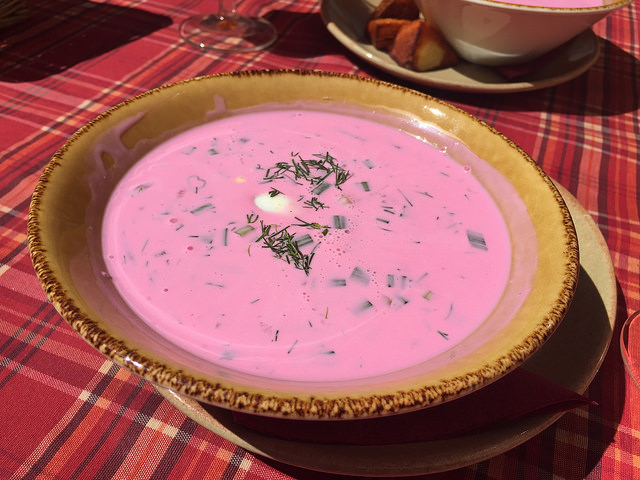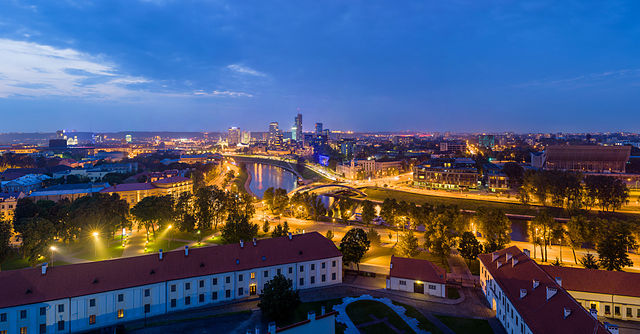Lithuanian: the Origins of it All
If you're already dreaming of summer holidays and are considering a little backpacking in Europe, a popular route to take through Eastern Europe thanks to cheap bus travel tends to be Tallinn-Vilnius-Riga. And though we hate to play favourites, there is much about Lithuania's capital that has stolen our heart. So with that in mind, we'd like to tell you a little about Lithuanian, so when you can explore the beautiful Vilnius you can use the language to help it capture your heart too!
Vilnius at dusk via Wikimedia
Two for one
Before we start getting into the specifics of the language, it might interest you to know that if you take this particular travel route, some of the words you learn in Vilnius might serve you well in Riga as well! Since although Lithuanian and Latvian isn't said to share mutual intelligibility, there are a vast number of words that are virtually the same.
There is širdis/sirds (heart), rankā/ranka (hand), draũgas/dràugs (friend—though be careful; these can have other meanings), and bėgu/bēgu (I run/run away) as just a few examples. Lithuanian all has many cognates with classical languages such as Sanskrit and Latin as well: vyras (Latin: vir, Sanskrit vīras — a man), ugnis (Latin ignis, Sanskrit agni — fire), naktis (Latin noctes, Sanskrit naktis — night) as examples. So there's lots of language you might already know to get you by!
Lithuanian
Lithuanian is an Indo-European language on the Eastern Baltic branch of the family which it shares with only one other living language—Latvian. It is spoken by around three million people—about 200,000 of which live outside of Lithuania, uses a Latin alphabet for writing consisting of 32 letters, and has its own form of Braille.
Lithuanian is said to be the most conservative of Indo-European languages because it retains features of Proto-Indo-European that most other languages have lost. In fact, French linguist Antoine Meillet is rather snootily quoted as saying: "Anyone wishing to hear how Indo-Europeans spoke should come and listen to a Lithuanian peasant." What a charming individual...
Lithuanian is the official language of Lithuania, also an official language of the European Union, and is a recognised minority language in Poland, which is both a nod to the numerous changes in the region over the years in terms of borders and status, and also to Lithuanian's own Slavic roots.
Learning a new language? Check out our free placement test to see how your level measures up!
Speaking of roots
Lithuanian is a Baltic language along with Latvian and the now-extinct Old Prussian, which is the most archaic of Baltic languages, along with a handful of other extinct languages. Why is that important? Well, amongst language lovers and traditionalists in Lithuania and Latvia, there is the urgency to preserve these last remaining Baltic languages, a sort of language camaraderie between the two. Speak either one of the languages in either country and you're more likely to be greeted as an old friend than in other countries—even if they don't understand every word you're saying!

Practise your Lithuanian for a little borscht via Flickr
Finally: express yourself
Because we do love learning about expressions in other languages. Lithuanians don't have dirty minds like the rest of us, they have garbanotos mintys — curly thoughts. They don't go to the bathroom, and instead eiti pas nykštukus — visit the dwarves. A Lithuanian will never lie to you, they will kabinti makaronus — hang pasta on your ears. And there are no fights in Lithuania, ever, there are aiškintis santykius — clarifications of relationships. Doesn't Lithuania sound like a great place to be?!



